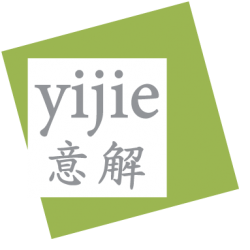Measure to Help Enterprises Affected by the Pandemic
On 29 March 2022, the Shanghai Municipal Government issued several measures to support micro, small and medium enterprises impacted by the recent pandemic outbreak in Shanghai, to help them survive and recover after the pandemic-related lockdown. Here some details.
Measures to Support Service Sector: Additional VAT deductions and VAT exemption, reduction of social insurance costs related to unemployment and medical funds, reduction or exemption of real estate tax and urban land use tax, government fund to support rent exemption in high-risk areas, pre-tax deduction of income tax for new machinery, credit support to micro-small-medium size enterprises, reduction of bank fees, subsidy for Covid-tests, financing guarantee lowered, tolerance for non-performing loans, facilitate registration of new companies and whole process of procedures for enterprise modification and cancellation.
Enterprises engaged in cultural, sports, tourism and catering sectors will continue to be eligible for an additional VAT deduction of 15% till 31 December 2022.
For the tourism sector the supply of credit will be increased for “A” level tourist attractions, rural tourism operators, resorts, star rated hotels and travel agencies.
For the catering sector: take-away and internet platform will reduce service fees and will refund the commissions.
For the transportation sector: financing support to transport enterprises, advance payment of VAT by air transport enterprises is suspended for 1 year; transfer of funds to support airlines and airports; financial support for civil aviation infrastructure development; promote cancellation of marine transportation premium and port charges included in the price of aviation kerosene.
Rent Support: Small-micro enterprises and commercial households that rent state-owned facilities are exempted from rent for 3 months in 2022. Enterprises located in Covid high-risk areas and whose business activities are seriously affected by the implementation of pandemic prevention requirements will be eligible for a further 3 months of rent exemption. For private-owned facilities the government encouraged the property owners to support the tenants with rent deductions.
Extension of tax filing deadline: The tax filing deadlines of April and May are postponed from 29 April to 31 May 2022. Taxpayers that still have difficulties in filing tax on time due to the impact of the pandemic may apply for further extension of the declaration.
VAT Exemption: On 24 March 2022 the State Administration of Taxation and the Ministry of Finance published Announcement no.15 on “Exemption of VAT for small scale taxpayers”, according to which from 1 April, 2022 to 31 May 2022 small-scale VAT taxpayers subject to 3% VAT tax rate on their sales revenue will be exempt from VAT. Small-scale is normally defined as an annual VAT taxable sales not exceeding RMB 5 million.
VAT Refund: Starting from 1 April 2022 small-scale enterprises engaged in manufacturing, scientific research, electricity, heat, gas, and water supply, software and information technology services, ecological protection and environmental governance, transportation, storage, and delivery services will be able to apply for VAT credit refund on a monthly basis (previously only available to companies in the advanced manufacturing industry).
Additional Tax Exemption: Exemption from paying urban maintenance and construction tax, real estate tax, urban land use tax, stamp tax (excluding securities transaction stamp tax), land occupation tax, education surcharge and local education surcharge. This tax benefit was originally applicable from 1 January 2019 to 31 December 2021, but the policy has now been extended to 31 December 2024.
Please contact us for further details on any of these measures.

